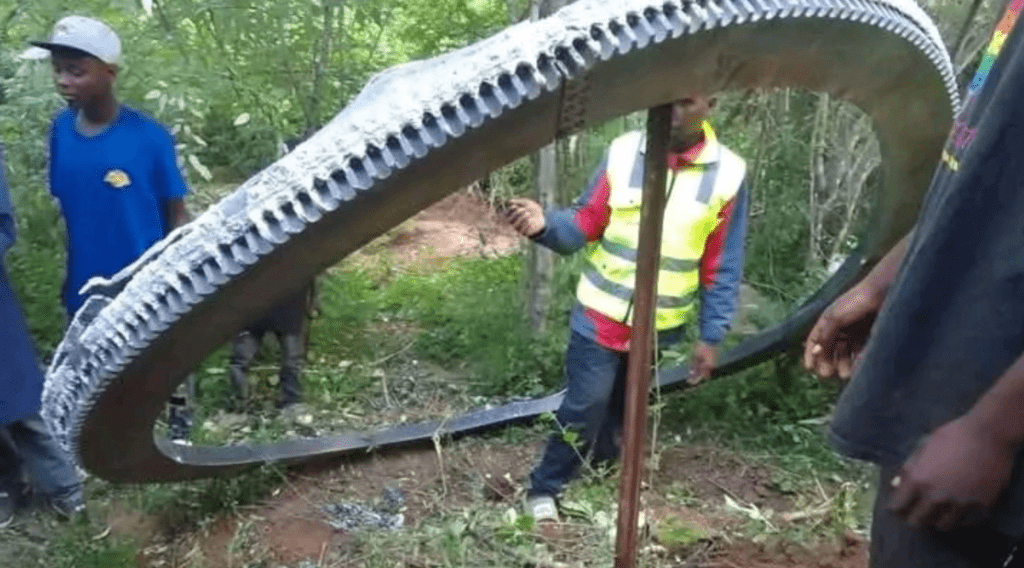Kenya has demanded compensation from India over 500 kilogrames of debris from the country’s SpaDex mission, which landed at Makuku Village in Makueni County.
The debris landed in the village on December 30.
Officials said the debris had been traced to India’s SpaDex mission, which was launched on the same day.
Kenya has now notified India of compensation demand over the incident, an official said.
Preliminary investigations by the Kenya Space Agency showed that the metallic object, measuring approximately 2.5 meters in diameter, was a component of a rocket’s separation mechanism.
Such debris is typically designed to disintegrate upon re-entry into the Earth’s atmosphere or land in unpopulated areas, like oceans but in this case, the object landed in a residential area, posing risks to lives and property.
This event sheds light on the escalating issue of space debris.
With over 250 rocket launches annually as of 2024, the likelihood of such incidents is increasing.
Historically, space debris is designed to disintegrate during re-entry or fall in uninhabited regions, such as oceans.
However, this incident mirrors other recent close calls. In May 2024, for example, SpaceX debris landed alarmingly close to hikers in North Carolina.
Experts warn that the growing volume of space debris poses significant risks to both Earth and orbital environments.
The KSA’s findings have reignited calls for international cooperation and stricter regulations on space debris management.
Many advocate for enhanced tracking systems and more robust legal frameworks to mitigate the hazards associated with human activity in outer space.
Without urgent action, the risks posed by space debris will only grow, threatening both safety and technological progress.
KSA said the object, a metallic ring measuring approximately 2.5 meters in diameter and weighing about 500 kilos is a fragment of a space object.
“Preliminary assessments indicate that the fallen object is a separation ring from a launch vehicle (rocket).”
“Such objects are usually designed to burn up as they re-enter the Earth’s atmosphere or to fall over unoccupied areas, such as the oceans,” KSA said in a statement.
It added this is an isolated case, which the agency will investigate and address using the established framework under the International Space law.
KSA officials rushed to the scene and, working alongside a multi-agency team and local authorities, secured the area and retrieved the debris, which is now under the Agency’s custody for further investigation.
The statement added that agency experts will analyze the object, use existing frameworks to identify the owner, and keep the public informed of the next steps and outcomes.
Residents were treated to a rare spectacle when they spotted the object.
Witnesses who heard the object fall said they heard a loud bang that stretched as far as 50 kilometres away.
“Under normal circumstances, such objects are supposed to burn up completely or land safely in the ocean,” Major Alois Were of KSA said.
READ, ALSO;
